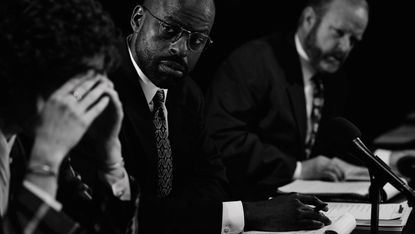
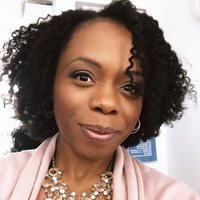
It was 20 years ago that some 107 million people tuned in to watch the final verdict broadcast live on television. The case was, officially, the People of the State of California v. Orenthal James Simpson, but quickly became known as the "Trial of Century." And now, thanks to the TV series American Crime: The People v. O.J. Simpson, we can climb back down the rabbit hole of the murder case that captivated the world.
One person who's watching with a special interest is Jenee Darden, 36, a blogger and daughter of Simpson trial prosecutor Christopher Darden, played by actor Sterling K. Brown. We spoke with Jenee about the show, the real trial, and the experience of being splashed across the pages of the tabloids as a teenager—wearing your high school winter formal dress, no less.
Marie Claire: At the time of actual trial, you were just 15 years old. What do you remember most about the trail and about that whole moment in time?
Jenee Darden: It was really big and sensational and absorbing. It was all anyone was talking about.
My father was followed by the paparazzi. He got death threats.
Jenee Darden
MC: Did the fact that it was a murder trial, where two people violently lost their lives, resonate with you at that young of an age or was it more about watching your father do his job?
JD: For me, it was a little bit of both. People watching the trial got caught up in the drama and forgot that two people died. It was everything in a soap opera: sex, betrayal, murder—and it's unfortunate that people forgot that two people were killed. Two families were seriously impacted.
Our family was also impacted. My father was followed by the paparazzi. He got death threats. My mother and I lived in Oakland, but we were still hounded by the media, calling our home.
Stay In The Know
Marie Claire email subscribers get intel on fashion and beauty trends, hot-off-the-press celebrity news, and more. Sign up here.
The public's obsession with the trial exhibited our crazy celebrity culture. It also showed how far we have to go when it comes to race in this country.
MC: I've read that your father is not watching the TV series, but you are. What's it like seeing your father depicted on screen?
JD: It's kind of weird. But I do like the actor who is portraying my father. I wasn't going to watch until I saw an interview with him.
I like the fact that he did his research. And I like how he seems to be tapping into some of the complexities of the position my father was in: being a black prosecutor prosecuting a former professional black athlete. OJ Simpson is from the Bay Area, and so is my father. They both kind of came up in similar backgrounds; both grew up in the hood and then went to L.A.
My father was very proud of his blackness and to have his community view him as traitor was hurtful.
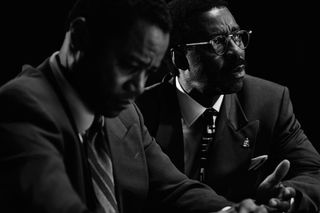
Actors Cuba Gooding Jr and Courtney B. Vance as OJ Simpson and Johnnie Cochran
MC: A recent episode, "The Race Card," dives into the racial dynamics in a very real way and focuses on the clash between Johnnie Cochran and your dad. It really underscored the frustration, hostility, and incredible backlash that your father faced from the black community in doing his job. How did the backlash affect him?
JD: It hurt him. He got a lot of angry letters. One of the reasons he wanted to be a prosecutor was to help the black community.
MC: How—if at all—was he able to move past any feelings of betrayal and heartbreak this caused?
JD: The trial was life-changing for all of us. Of course it doesn't sting as much as it used to. People aren't as critical of him as they used to be, but when we talk about it now, I think the pain still comes up again.
MC: Some of your father's personal life ended up in the tabloids back then. Your parents were never married, and so the story became that reporters had "found" Christopher Darden's secret love child: you. What was that like for you?
JD: It was very shocking. I was just a regular teenager, and I didn't think there was anything interesting about me. But that just shows you how thirsty the tabloids were for anything linked to the trial. I was never a secret!
I was disappointed and disgusted because my uncle's ex-wife had sold the "story" and the picture of me from my winter ball to the tabloids. It was really strange to go to school the next day and see people reading it. They had to put a bar across my face because I was a minor.
my uncle's ex-wife had sold the 'story' and the picture of me from my Winter Ball to the tabloids.
Jenee Darden
MC: What do you think about the trial now, in retrospect, as an adult?
JD: I've always had sympathy for my father and Marcia Clark, but now I have more.
I'm in my mid-30s, so I'm almost my father's age during the trial. I couldn't imagine dealing with all of that. I can't imagine being Marcia Clark—like here I am a professional attorney, but there are articles every day about my hair and my clothes. Just being judged every day by people watching you around the world. Or being followed and people hating you. Marcia Clark had to wear a wig when she went out in public. Just to go grocery shopping, she had to wear a disguise! I can't imagine living like that. And if it was today, with social media and everyone having a phone, it would be hell.
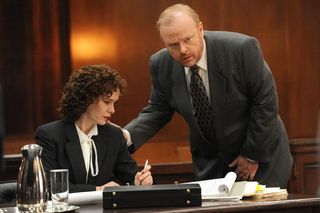
Actors Sarah Paulson and Christian Clemenson as Marcia Clark and Bill Hodgman
MC: What's your take on the characters—namely your father, as well as Johnnie Cochran, Marcia Clark, and OJ Simpson—depicted on the show? And what's your impression of these people in real life?
JD: I've never met or spoke to Johnnie Cochran. Sometimes I would go to the courtroom and once he walked by and waved at me and my mother. He was a good attorney, but I kind of hate that he put it out there that my father was a token. He implied that—and it didn't help my father. I respected [Cochran's] job, but I didn't like that part of his job was to [malign] my dad.
I met Marcia Clark when she and my father drove up to visit us [in Oakland]. She, my mom and I had a girl talk, and we spoke briefly about some of the sexism she endured. She's such a strong woman. She's no pushover! She really encouraged me to stand strong against [sexism], stand up for myself, and to not be disrespected by men. Sarah Paulson is doing a great job portraying her on the show.
I'm in my mid-30s, so I'm almost my father's age during the trial. I couldn't imagine dealing with all of that.
Jenee Darden
I think the casting on the show is exceptional. The costumes, the makeup—everybody looks like the people they are playing. The courtroom scenes look like real footage from the trial.
MC: Would you say that you felt then and/or now that OJ Simpson was clearly guilty or innocent?
JD: Oh, I thought OJ was guilty, even back then. That was not because of my father.
MC: What's the one thing you wish people understood more about your father, then and now?
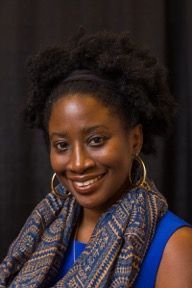
Darden, age 36
JD: In a few episodes they showed my father being playful, dancing, and listening to music. I'm glad they showed that. When I was little he would do things like that; when his favorite song would come on he'd dance. Seeing that on the show really touched my heart because I felt like they were showing my dad.
I want people to understand the layers of challenges he had to endure from the District Attorney's office and the [black] community and issues with our family. He felt bad about dragging us into all of it—us getting harassed. It wasn't just like he was going to work. There was so much other stuff going on related to this trial. He was dealing with a lot while the world is watching him do his job and critiquing him. It was heavy. And it changed our lives.
Follow Marie Claire on Instagram for the latest celeb news, pretty pics, funny stuff, and an insider POV.
-
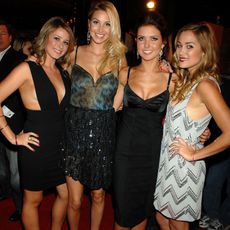 Women on ‘The Hills’ Were Put In ‘Compromised Situations’ Like ‘Blood Sport,’ Cast Member Lo Bosworth Says
Women on ‘The Hills’ Were Put In ‘Compromised Situations’ Like ‘Blood Sport,’ Cast Member Lo Bosworth SaysAs compared to its predecessor, ‘Laguna Beach,’ Bosworth said ‘The Hills’ had a “much bigger impact from a drama and trauma perspective.”
By Rachel Burchfield Published
-
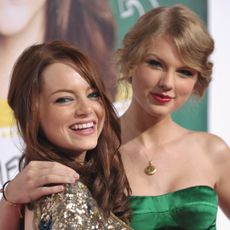 Emma Stone Has a Credit on Bestie Taylor Swift's 'Tortured Poet's Department'
Emma Stone Has a Credit on Bestie Taylor Swift's 'Tortured Poet's Department'Their decade-long friendship has been immortalized in Swift's discography for the second time.
By Quinci LeGardye Published
-
 Kourtney Kardashian Barker Loves Her Postpartum Body, Thank You Very Much
Kourtney Kardashian Barker Loves Her Postpartum Body, Thank You Very MuchAfter a body shaming troll tried to tear her down, she reminded them that her body “gave me my 3 big babies and my little baby boy.”
By Rachel Burchfield Published
-
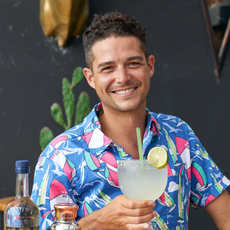 ‘Bachelor in Paradise’ 2023: Everything We Know
‘Bachelor in Paradise’ 2023: Everything We KnowCue up Mike Reno and Ann Wilson’s “Almost Paradise."
By Andrea Park Last updated
-
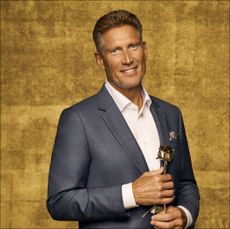 Who Is Gerry Turner, the ‘Golden Bachelor’?
Who Is Gerry Turner, the ‘Golden Bachelor’?The Indiana native is the first senior citizen to join Bachelor Nation.
By Andrea Park Last updated
-
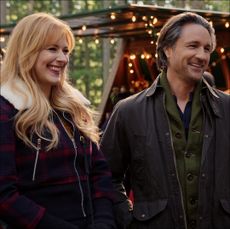 ‘Virgin River’ Season 6: Everything We Know
‘Virgin River’ Season 6: Everything We KnowHere's everything we know on the upcoming episodes.
By Andrea Park Last updated
-
 Kim Cattrall Didn't See or Speak to Her Costars When Filming 'And Just Like That' Cameo
Kim Cattrall Didn't See or Speak to Her Costars When Filming 'And Just Like That' CameoThat's some type of commitment.
By Iris Goldsztajn Published
-
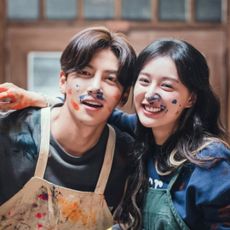 The 65 Best K-Dramas You'll Be Completely Hooked On
The 65 Best K-Dramas You'll Be Completely Hooked OnWait, how is it already 2 a.m.?
By Quinci LeGardye Last updated
-
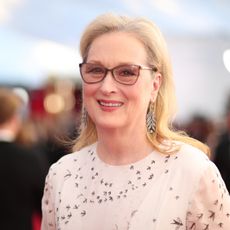 Selena Gomez Revealed Meryl Streep Is Joining 'Only Murders in the Building' Season 3
Selena Gomez Revealed Meryl Streep Is Joining 'Only Murders in the Building' Season 3Fans are losing it.
By Iris Goldsztajn Published
-
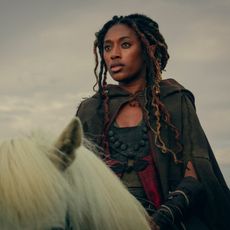 Sophia Brown on Joining the World of ‘The Witcher: Blood Origin’
Sophia Brown on Joining the World of ‘The Witcher: Blood Origin’The actress opens up about the “surreal process” of playing the Lark in the Netflix fantasy prequel.
By Quinci LeGardye Published
-
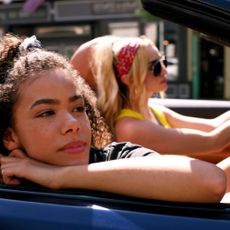 'Ginny & Georgia' Season 2: Everything We Know
'Ginny & Georgia' Season 2: Everything We KnowNetflix owes us answers after that ending.
By Zoe Guy Last updated